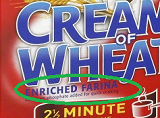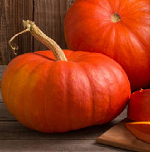It’s Thanksgiving time in the US, a holiday of feasting and, as a Canadian Friend was pointing out, apparently a time that is not exactly keto-friendly: potatoes, bread, stuffing (more bread), pies, and so on. But it gives me an opportunity to investigate a term I just ran across.
On one of the FB groups I belong to, someone posted this little article, a just-so story/etymythology about a word origin:
As the poster on FB noted, this is not the origin of the word macaroni. (You can read about that on Etymonline; basically, it’s related to macaroon.) But I was interested to see the word farinaceous (“farinaceous tubes”), which I had never heard before.
 I really had no idea what it could mean, but the dictionary revealed all. Farinaceous means “made up of or containing starch,” which is certainly true for macaroni. It’s an adjectival form of farina, which is a word for ground “vegetable matter” (like grain) used as a thickener or a cereal. The word farina I did know, sort of, based on a childhood preference for Cream of Wheat over oatmeal.
I really had no idea what it could mean, but the dictionary revealed all. Farinaceous means “made up of or containing starch,” which is certainly true for macaroni. It’s an adjectival form of farina, which is a word for ground “vegetable matter” (like grain) used as a thickener or a cereal. The word farina I did know, sort of, based on a childhood preference for Cream of Wheat over oatmeal.
I don’t know whether we can stretch the meaning of farinaceous as a descriptive term for an entire meal (“American Thanksgiving dinners are startlingly farinaceous”), but I don’t think anyone’s going to stop us if we try.
For origins today, I got to wondering about another seasonally appropriate term: pumpkin. In the US, pumpkin is solidly associated with fall and especially Thanksgiving. The latter made me wonder whether pumpkin is a new-world food like corn and tomatoes and turkey itself. And if so, whether the word pumpkin has origins in an indigenous language.
Botanically, yes: pumpkins seem to have originated in the Americas as part of the larger squash family. (As with apples, the distinct varieties of squashes are the result of hybridization and careful husbandry; they are not necessarily naturally occurring.)
 But lexicographically, pumpkin is a French word, at least as concerns us in English; we borrowed the name pompon or pompion from them. It seems to have been related to other words for vine-grown edibles (in Spanish, cucumbers are pepinos). The term goes back through Latin to Greek pepon, a word for a melon.[1]
But lexicographically, pumpkin is a French word, at least as concerns us in English; we borrowed the name pompon or pompion from them. It seems to have been related to other words for vine-grown edibles (in Spanish, cucumbers are pepinos). The term goes back through Latin to Greek pepon, a word for a melon.[1]
There are a couple of curious things about the word pumpkin. One is that -kin ending, which was sometimes used earlier in English as a diminutive (napkin or firkin, see also the -chen in German in words like Liebchen). For pumpkin, tho, it seems that the -kin ending probably doesn’t represent some sort of “wee pompion.” The -kin on pumpkin might have come about by analogy with existing words that had -kin on the end.
Which raises the second curiosity about pumpkin: why do so many people pronounce it as punkin? This is an American thing, attested for a couple of hundred years. (And scorned among those who have “more correct” pronunciation—example, example.) The explanation is probably phonological: it’s awkward to go from sounds like P and M, which are formed at the front of the mouth, to a K, which is formed at the back of the mouth. So people assimilate sounds to make pronunciation smoother. In this case, the people shift the M to a velar N—the same N that’s in the middle of singing and bringing. Result: punkin.
Oh, and pumpkin is also used as a term of endearment. Which I suppose isn’t any weirder than the French using the word cabbage in a similar way.
Like this? Read all the Friday words.
 |
|

 |
|
